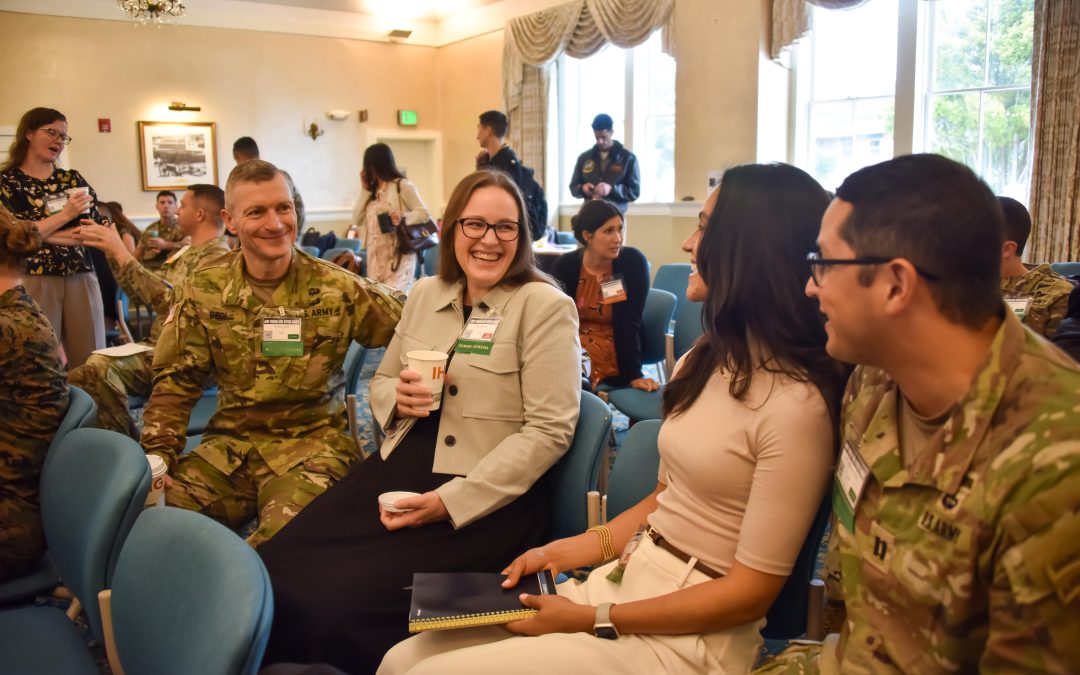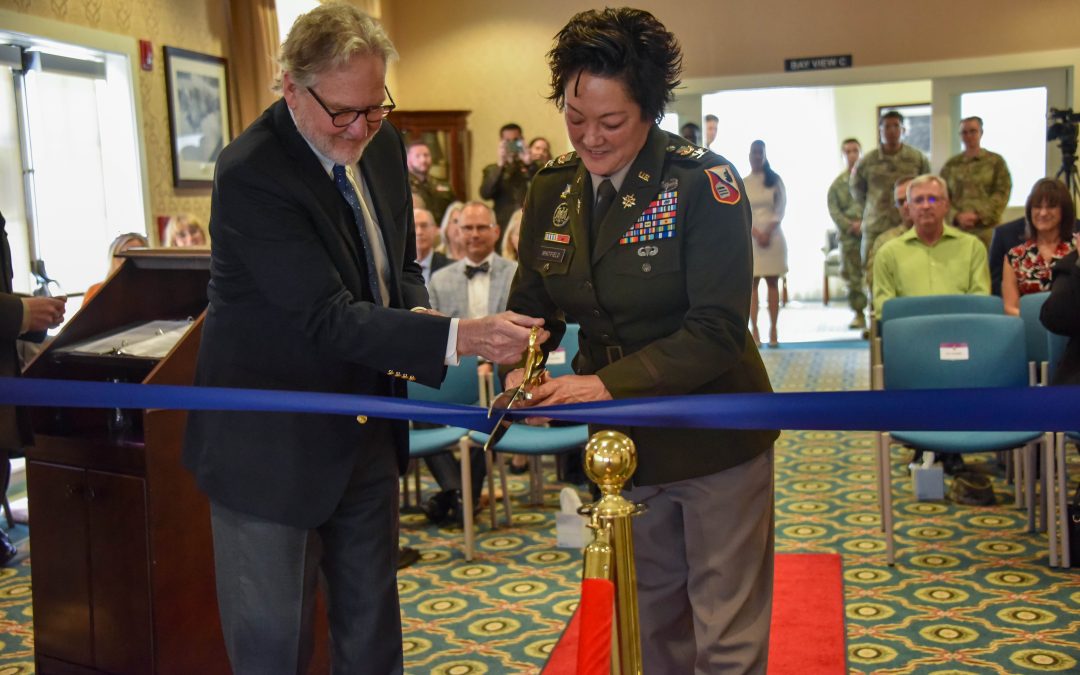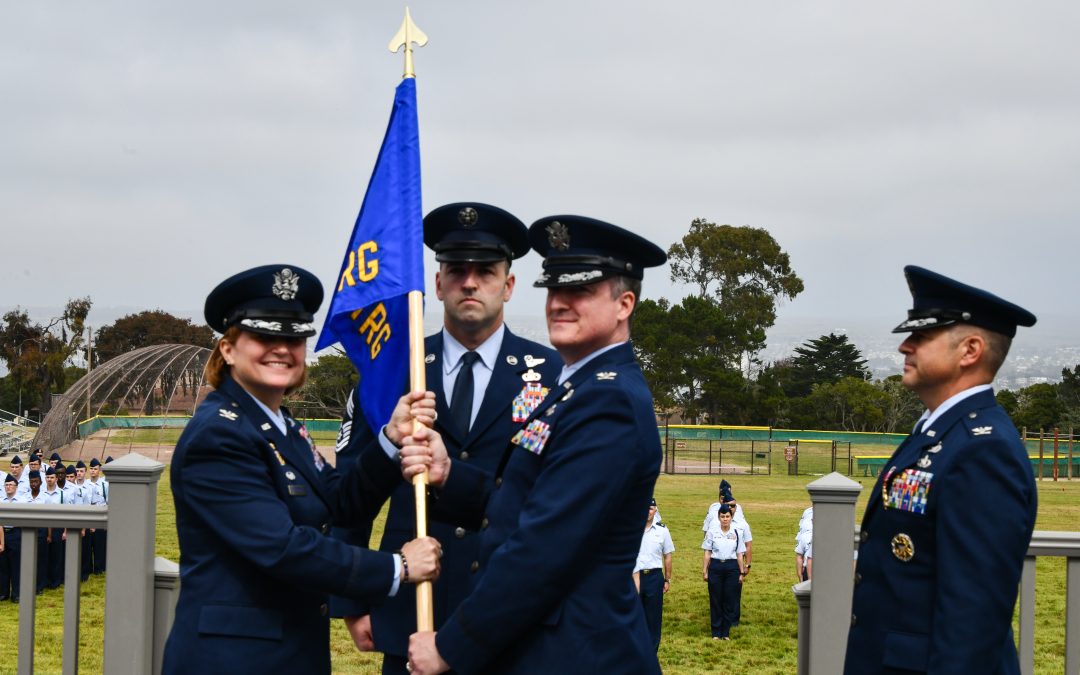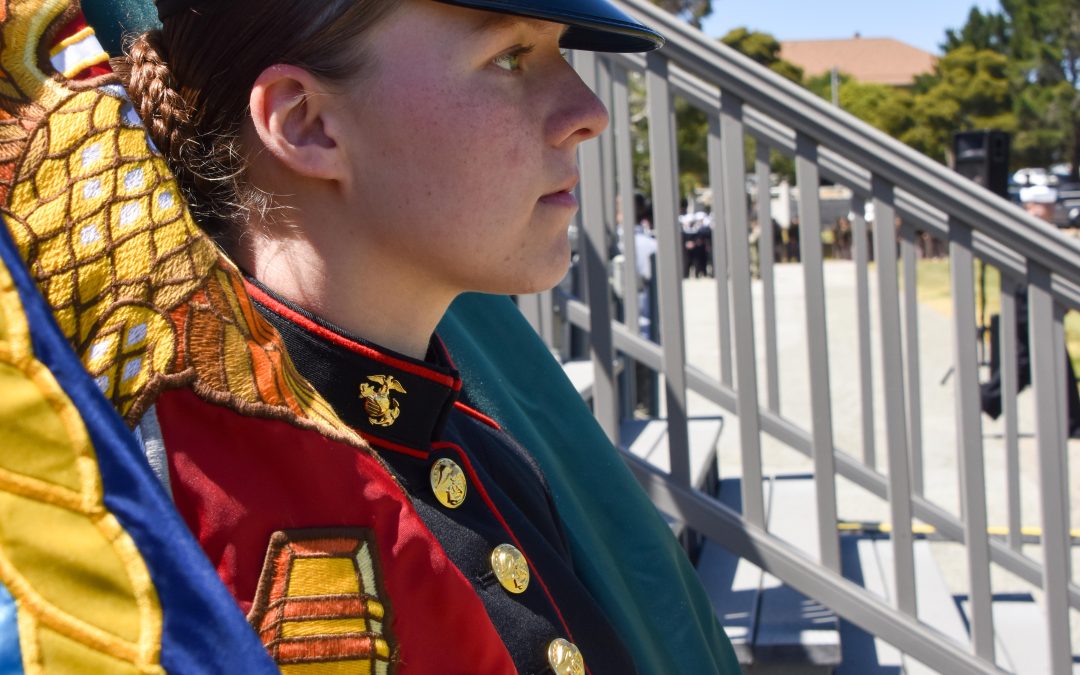By Patrick Bray
DLIFLC Public Affairs
Editor’s note: This article is a feature from the Foreign Area Officer program’s monthly officer professional development series at DLIFLC.
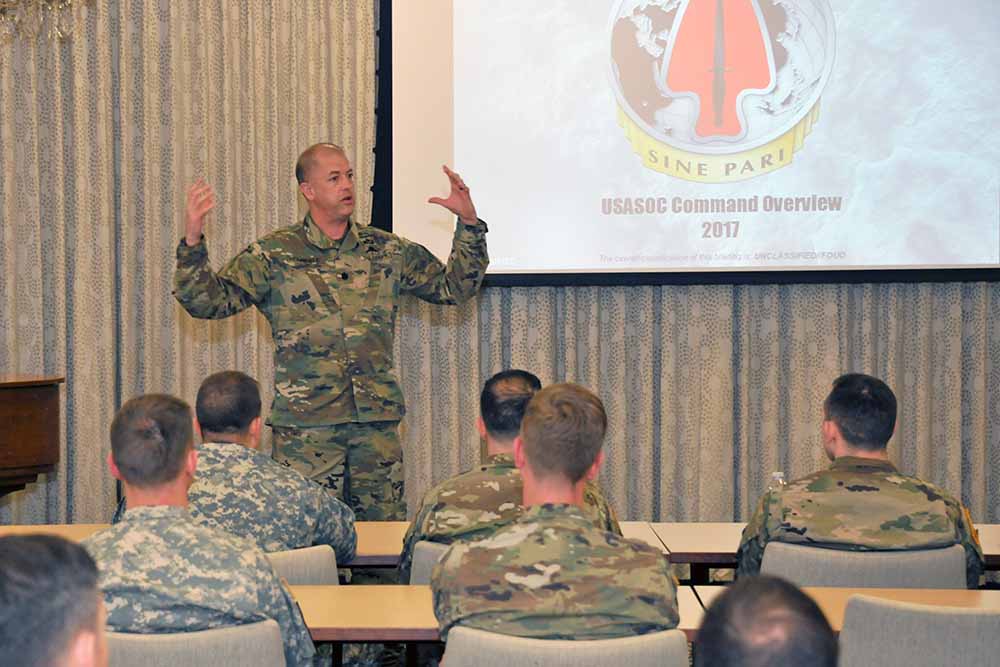
Lt. Col. Gordon Landale from the Naval Postgraduate School in Monterey spoke to Foreign Area Officers in language training at the Defense Language Institute Foreign Language Center March 15 about U.S. Army Special Operations and how it can work within a country team to advance U.S. priorities. (Photo by Patrick Bray, DLIFLC Public Affairs)
MONTEREY, Calif. – Lt. Col. Gordon Landale from the Naval Postgraduate School in Monterey spoke to Foreign Area Officers in language training at the Defense Language Institute Foreign Language Center March 15 about U.S. Army Special Operations and how it can work within a country team to advance U.S. priorities.
A country team is the foundation of a U.S. Embassy and includes many interagency personnel to promote diplomacy abroad. Some country teams are further augmented by the National Guard’s State Partnership Program. Special operations, which include U.S. Army Special Forces, Psychological Operations and Civil Affairs, can bring even more capabilities to the team, according to Landale.
Landale, with special operations experience in various theaters and joint task force duties with NATO, began his 21-year career as an infantry officer before going to Special Forces selection in 2001. During the qualification course he trained in a mock embassy, but it would take 15 years before he stepped foot into a real embassy in Tajikistan.
“Without the Defense Attaché, I would not have known what to expect,” said Landale, speaking about the importance of interoperability.
U.S. Government agencies along with the departments of State and Defense must collaborate to achieve U.S. priorities in a given country under the Integrated Country Strategy – the ambassador’s multi-year plan that articulates those priorities.
Peacetime engagements by special operations go hand-in-hand with the diplomatic relationships built by FAOs. Special operations has a diverse portfolio and are used for a variety of purposes during peacetime to identify and resolve pending crises or conflicts. Many of the conflicts occur in parts of the world plagued by disease, starvation, poverty and civil strife.
Though they have regional responsibilities, special operations troops must notify the embassy before conducting missions in a foreign country unless there is a designated operation, such as Enduring Freedom. For Landale, FAOs helped close the gap in Tajikistan between the country team and special operations.
Landale is a defense analysis graduate at NPS and the director of the Common Operational Research Environment Lab there. The CORE Lab researches the irregular warfare environment, which integrates geospatial, cultural, relational and other data for use by field operatives. He spoke as part of the FAO program’s monthly officer professional development speaker series, which is a critical part of FAO training at DLIFLC. The monthly program is an essential addition to the biannual Joint Foreign Area Officer Course Phase I, usually held in January and June.
FAOs, who come from the four branches of the U.S. military, are regionally focused and are considered experts on political-military issues. Once their FAO training is completed, they are expected to serve as defense attachés, security cooperation officers and political-military planners worldwide.
DLIFLC provides resident instruction in 17 languages at the Presidio of Monterey, California, with the capacity to instruct another 65 languages in Washington, D.C., graduating more than 220,000 linguists since 1941.
In addition, multiple language training detachments exists at sites in the U.S., Europe, Hawaii and Korea spanning all the U.S. geographic combatant commands in support of the total force.

